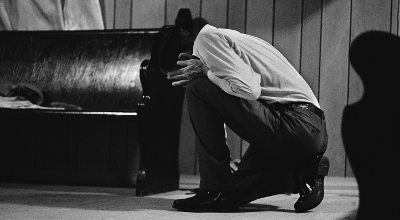Survey: Majority of Pastors Experience Loneliness, Discouragement
Though almost all pastors feel privileged to be in ministry, a majority also experience loneliness and discouragement.
That is the finding of a survey by LifeWay Research of 1,000 American Protestant pastors conducted Aug. 17-24.
A full 98 percent agree with the statement, “I feel privileged to be a pastor,” with 93 percent strongly agreeing. Only about 0.5 percent of pastors disagree with the statement.
Yet more than half (55 percent) also agree with the statement, “I find that it is easy to get discouraged,” and 55 percent say being in pastoral ministry makes them feel lonely at times.
“Many oft-quoted statistics speak of miserable and unhappy pastors, but that’s not what we see when we actually ask them,” explained Ed Stetzer, vice president of research and ministry development at LifeWay Christian Resources. “There is discouragement and loneliness, but when 98 percent agree it is a privilege to be a pastor, we also know there is a great honor to being a pastor.”
Pastors 65 and older are the least discouraged age bracket. While 30 percent of those 65 and older strongly disagree that it is easy to get discouraged in ministry, only 19 percent ages 55-64 strongly disagree along with 13 percent ages 45-54 and 11 percent ages 18-44.
Pastors 65 and older are also most likely to strongly disagree (39 percent) with the statement, “Pastoral ministry makes me feel lonely at times.” Twenty-nine percent of those ages 55-64 strongly disagree, as well as 21 percent ages 45-54 and 19 percent ages 18-44.
Ironically, pastors of larger churches are lonelier. Of those in congregations with average attendance of 250 or more, 17 percent strongly disagree that pastoral ministry makes them feel lonely at times. In comparison, 32 percent with churches of 0-49 and 27 percent with churches of 100-249 strongly disagree.
“Pastors feel privileged, but clearly the reality of constant service can take its toll,” Stetzer said. “There is discouragement and loneliness in ministry. It appears that the larger the church the more present the loneliness.”
Positively, nearly eight in 10 pastors (79 percent) disagree with the statement, “Being in ministry has had a negative effect on my family.” A majority (58 percent) strongly disagree. Twenty percent somewhat disagree, 15 percent somewhat agree and 4 percent strongly agree.
“This statistic has to be one of the biggest surprises,” said Stetzer, who has also served as a pastor. “Pastoring can be stressful on a family, but contrary to some hyped statistics, most do not believe that being a pastor has hurt their family.
“Pastoring is difficult, and family life is a fishbowl, but overstating the challenge and dangers of pastoring can discourage pastors and create an expectation of family disruption leading to that very problem,” he said.
Pastors in the South (63 percent) are more likely to strongly disagree that ministry has had a negative effect on their families than their counterparts in the Northeast (51 percent) or Midwest (54 percent).
The study found that 18 percent of pastors have more than 10 close friends in their congregation. Sixteen percent have six to 10, 38 percent have three to five, 10 percent have two and 4 percent have one. Twelve percent of pastors have no close friends in their congregation.
Pastors 65 and older are less likely to have no close friends in their church and most likely to have more than 10 close friends. Six percent of pastors ages 65 and older have no close friends, compared with 14 percent ages 55-64 and 13 percent ages 18-44.
More than a third (34 percent) of pastors 65 and older have more than 10 close friends in their church.
Pastors in the Northeast (20 percent) are more likely to have no close friends in their church than those in the South (10 percent) or West (9 percent). Additionally, those identifying themselves as Mainline (18 percent) are more likely to have no close friends than those identifying themselves as Evangelicals (10 percent).
Relationships matter and it appears that pastors value those friendship—particularly as they get older,” Stetzer explained. “Older pastors (and I would add, younger pastors with wisdom) have developed more close friendships within their church and are less likely to be discouraged or lonely. This combination mirrors workplace studies that have shown that more friendships at work correspond with higher satisfaction with a person’s job and life.”














































